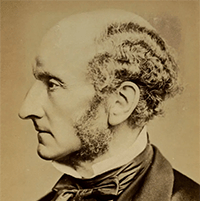You don’t want to become an engineer just for the money and prestige (though those are nice). Not even just for the satisfaction of the work itself. You also want to make the world better somehow, and become the sort of person you admire. That sounds great in theory, but what does it really mean? Do you take that job at Facebook? Do you work to help your company develop products people are eager to use, or do you focus on the possible effects on the environment? Do you help develop gene drives that could eradicate malaria—but also risk unforeseen and irreversible consequences? In developing new technologies, should equal outcomes be your foremost concern? What ultimate ends deserve to be pursued as the highest ones, and in what order?
The ethical questions and concerns you will face as an engineer are connected to the deepest questions of human life—questions about a just society, about a good human life, and about how these things fit together. You are already operating with some implicit answers to these questions. The problem is, your implicit answers are most likely somewhat confused and even contradictory.
While these questions have no easy answers, we can make progress in thinking them through and clarifying our answers to them. In Ethics for Engineers we give you the chance to do this, with the help of great ethical thinkers, some of whom have already influenced our own thinking (whether we realize it or not)—thinkers like Aristotle, Kant, Martin Luther King, Jr., Arendt, Tocqueville, Locke, Bacon, and Confucius. By reading excerpts of their works in combination with contemporary engineering case studies, we are able to test which ethical theories give the most helpful practical guidance, and consider which engineering decisions would follow from the most adequate ethical theory.
We offer Regular and BE Focus versions of the course (in addition to 7.105 for Biologists). Case studies for the Regular version are drawn from the whole range of contemporary engineering, while those for the BE Focus version concentrate on bioengineering, biology, and medical practice.
Our CASE STUDIES examine ethical decision-making in real-life engineering situations. The case studies we read and discuss in the Regular version include:
- Engineering disasters
- Covid vaccine distribution among wealthy and poor countries
- AI bias
- A NYC skyscraper in danger of collapse
- The Volkswagen emissions scandal
- Addressing climate change
- Racism and informed consent in clinical trials
- Using CRISPR to manipulate animal and human genomes
- Effects of social media on people’s lives and on society
- The power, promise, and dangers of rapidly advancing AI capabilities
We work hard to find concise readings that are interesting and thought-provoking.









